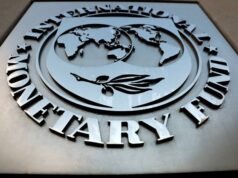Turkey Comments on US Unilateral Sanctions Over Iranian Oil
India and Turkey have discussed how they can work together to counter terrorism and common challenges such as the US decision to end exemptions to sanctions on Iranian oil imports said Ibrahim Kalin, senior advisor to the Turkish president.
Kalin, who held talks with National Security Adviser Ajit Doval and foreign secretary Vijay Gokhale, said Turkey and India find themselves on the “same page” on several pressing issues, including US sanctions on Iranian oil imports and Russian military equipment, and the American plan to end the Generalised System of Preferences (GSP) for preferential duty-free imports.
Like India, Turkey has been threatened with US sanctions under the Countering America’s Adversaries Through Sanctions Act for procuring the S-400 air defence system from Russia.
Kalin told an event at Observer Research Foundation Turkey opted for the Russian system only after trying unsuccessfully to buy the Patriot missile system from the US for 10 years.
Kalin said US sanctions “don’t work and hurt everybody”, and Turkey is on the same page with European nations on the issue of US ending exemptions to sanctions on Iranian oil imports, which are set to take effect from May 2.
Despite the threat of sanctions, he said Turkey had no plans to cut oil imports to zero or to stop trade with Iran “for the time being”.
“We are talking to the Europeans (to see) how we can find ways and mechanisms by which we continue to trade with Iran without affecting our economy and without violating the sanctions and having another confrontation with the US over this issue,” he said.
He added he hadn’t heard anything officially about India joining such a mechanism US unilateralism and trade wars will cost everyone, and the raising of tariffs and taxes in the name of protecting the American economy will “certainly backfire”, Kalin said.
“If the idea is to change Iranian behaviour on certain regional issues in Iraq, Yemen and Syria, that will not happen through sanctions.
You have to have further engagement and dialogue with Iran rather than this kind of antagonistic sanction-based policy,” he said.
Kalin said in Turkey’s view, there is no difference between the attack on mosques in New Zealand and the suicide bombings in Sri Lanka claimed by Islamic State.
Nine suicide bombers carried out a series of blasts targeting churches and luxury hotels on Easter Sunday in Sri Lanka, killing 253 people.
On March 15, a white supremacist killed 50 people and injured many others in two mosques, the deadliest mass shootings in New Zealand.
The “same mindset” was behind both attacks and the IS ideology has nothing to do with Islam, he added.




